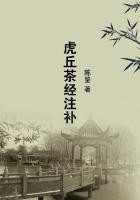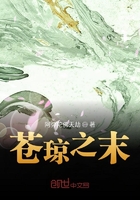IT is believed that in 1665, James Stevenson in Nether Carsewell, parish of Neilston, county of Renfrew, and presumably a tenant farmer, married one Jean Keir; and in 1675, without doubt, there was born to these two a son Robert, possibly a maltster in Glasgow. In 1710, Robert married, for a second time, Elizabeth Cumming, and there was born to them, in 1720, another Robert, certainly a maltster in Glasgow. In 1742, Robert the second married Margaret Fulton (Margret, she called herself), by whom he had ten children, among whom were Hugh, born February 1749, and Alan, born June 1752.
With these two brothers my story begins. Their deaths were simultaneous; their lives unusually brief and full.
Tradition whispered me in childhood they were the owners of an islet near St. Kitts; and it is certain they had risen to be at the head of considerable interests in the West Indies, which Hugh managed abroad and Alan at home, at an age when others are still curveting a clerk's stool. My kinsman, Mr. Stevenson of Stirling, has heard his father mention that there had been 'something romantic' about Alan's marriage: and, alas! he has forgotten what. It was early at least. His wife was Jean, daughter of David Lillie, a builder in Glasgow, and several times 'Deacon of the Wrights': the date of the marriage has not reached me; but on 8th June 1772, when Robert, the only child of the union, was born, the husband and father had scarce passed, or had not yet attained, his twentieth year. Here was a youth ****** haste to give hostages to fortune. But this early scene of prosperity in love and business was on the point of closing.
There hung in the house of this young family, and successively in those of my grandfather and father, an oil painting of a ship of many tons burthen. Doubtless the brothers had an interest in the vessel; I was told she had belonged to them outright; and the picture was preserved through years of hardship, and remains to this day in the possession of the family, the only memorial of my great-grandsire Alan. It was on this ship that he sailed on his last adventure, summoned to the West Indies by Hugh. An agent had proved unfaithful on a serious scale; and it used to be told me in my childhood how the brothers pursued him from one island to another in an open boat, were exposed to the pernicious dews of the tropics, and simultaneously struck down. The dates and places of their deaths (now before me) would seem to indicate a more scattered and prolonged pursuit:
Hugh, on the 16th April 1774, in Tobago, within sight of Trinidad; Alan, so late as 26th May, and so far away as 'Santt Kittes,' in the Leeward Islands - both, says the family Bible, 'of a fiver'(!). The death of Hugh was probably announced by Alan in a letter, to which we may refer the details of the open boat and the dew. Thus, at least, in something like the course of post, both were called away, the one twenty-five, the other twenty-two; their brief generation became extinct, their short-lived house fell with them; and 'in these lawless parts and lawless times' - the words are my grandfather's - their property was stolen or became involved. Many years later, I understand some small recovery to have been made; but at the moment almost the whole means of the family seem to have perished with the young merchants. On the 27th April, eleven days after Hugh Stevenson, twenty-nine before Alan, died David Lillie, the Deacon of the Wrights; so that mother and son were orphaned in one month. Thus, from a few scraps of paper bearing little beyond dates, we construct the outlines of the tragedy that shadowed the cradle of Robert Stevenson.
Jean Lillie was a young woman of strong sense, well fitted to contend with poverty, and of a pious disposition, which it is like that these misfortunes heated. Like so many other widowed Scots-women, she vowed her son should wag his head in a pulpit; but her means were inadequate to her ambition. A charity school, and some time under a Mr. M'Intyre, 'a famous linguist,' were all she could afford in the way of education to the would-be minister. He learned no Greek; in one place he mentions that the Orations of Cicero were his highest book in Latin; in another that he had 'delighted' in Virgil and Horace; but his delight could never have been scholarly. This appears to have been the whole of his training previous to an event which changed his own destiny and moulded that of his descendants - the second marriage of his mother.
There was a Merchant-Burgess of Edinburgh of the name of Thomas Smith. The Smith pedigree has been traced a little more particularly than the Stevensons', with a similar dearth of illustrious names. One character seems to have appeared, indeed, for a moment at the wings of history: a skipper of Dundee who smuggled over some Jacobite big-wig at the time of the 'Fifteen, and was afterwards drowned in Dundee harbour while going on board his ship. With this exception, the generations of the Smiths present no conceivable interest even to a descendant; and Thomas, of Edinburgh, was the first to issue from respectable obscurity. His father, a skipper out of Broughty Ferry, was drowned at sea while Thomas was still young. He seems to have owned a ship or two - whalers, I suppose, or coasters - and to have been a member of the Dundee Trinity House, whatever that implies. On his death the widow remained in Broughty, and the son came to push his future in Edinburgh. There is a story told of him in the family which I repeat here because I shall have to tell later on a similar, but more perfectly authenticated, experience of his stepson, Robert Stevenson. Word reached Thomas that his mother was unwell, and he prepared to leave for Broughty on the morrow.
It was between two and three in the morning, and the early northern daylight was already clear, when he awoke and beheld the curtains at the bed-foot drawn aside and his mother appear in the interval, smile upon him for a moment, and then vanish.














